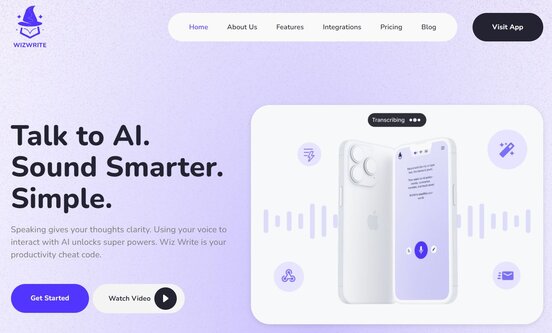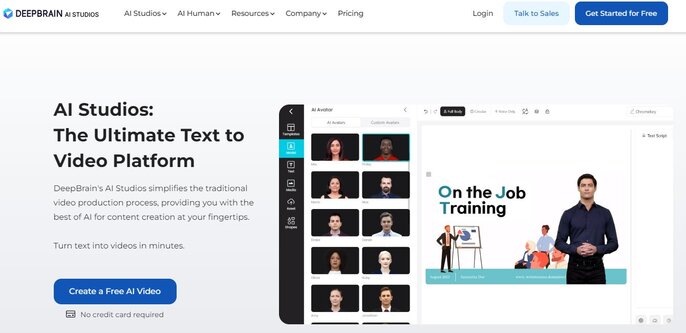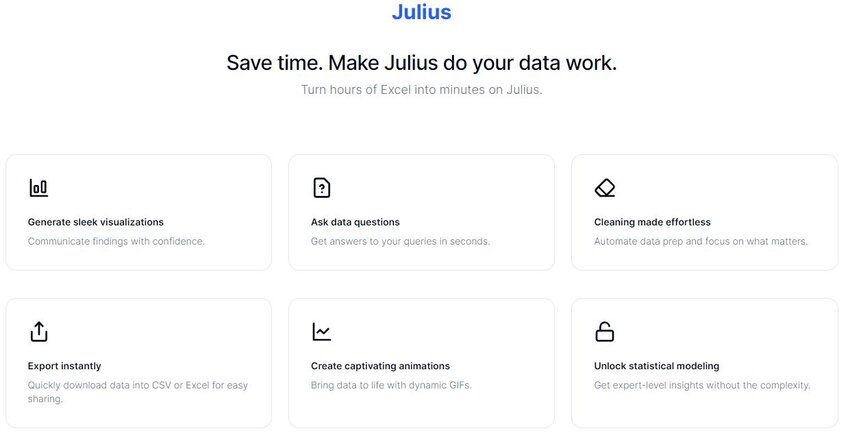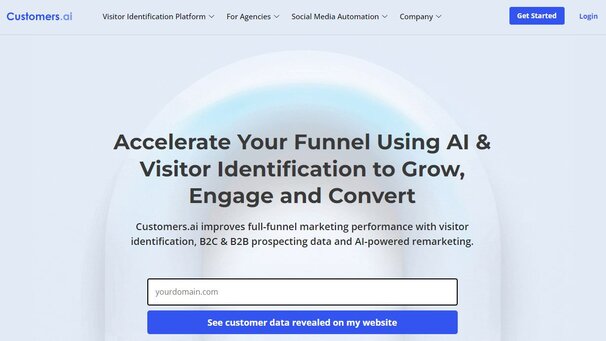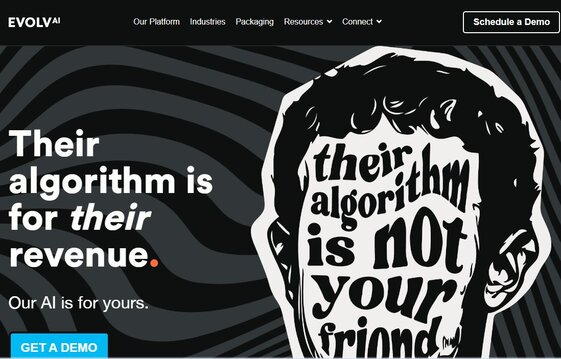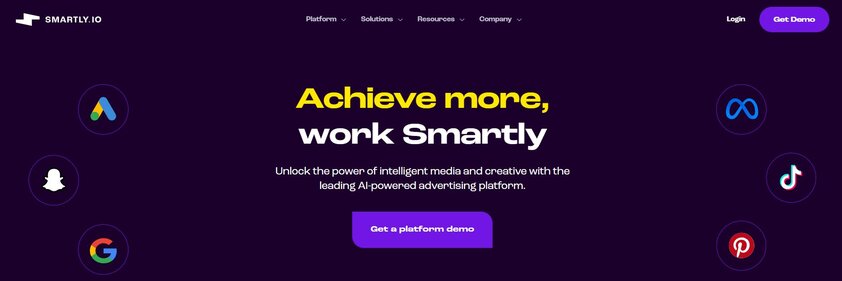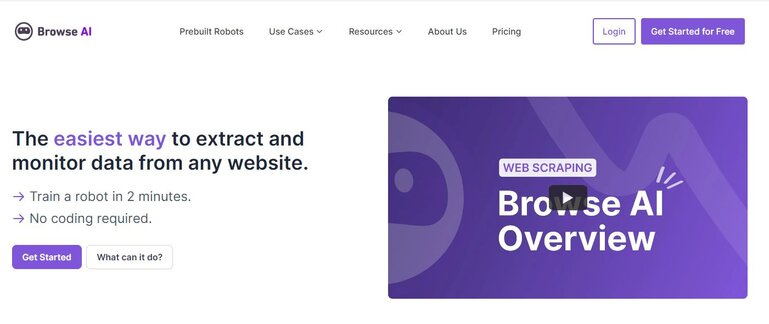Top 10 Marketing AI Tools
By Josephine Santos · 11 min read
Overview
In the rapidly evolving digital landscape, artificial intelligence (AI) has transcended being a mere buzzword to becoming an essential component in the toolkit of forward-thinking marketers. As businesses continually seek innovative solutions to automate and optimize their marketing strategies, the emergence of AI-powered tools offers a beacon of unmatched potential. With an overwhelming array of options at your disposal, identifying the most impactful tools can be a daunting task. This guide is designed to navigate you through the crowded space of AI marketing tools, spotlighting the top selections that are transforming business operations and setting the pace for the future of marketing.
The Advantages of Leveraging AI in Marketing
AI marketing tools are engineered to refine various aspects of the marketing journey, from data analysis to customer engagement. By efficiently processing vast datasets, these tools deliver insights, automation, and personalization at a scale and precision beyond human reach. Key benefits include:
- Efficiency: Automate repetitive tasks, saving time while reducing human error.
- Data-Driven Decisions: Harness AI to process extensive data for more accurate, evidence-based marketing strategies.
- Personalization: Deliver customized experiences to enhance user engagement and drive conversions.
- Cost-Effectiveness: Reduce reliance on manual efforts, saving on resources and boosting overall marketing efficiency.
Top 10 AI Marketing Tools Shaping the Future
1. Wiz Write
Transforming spoken ideas into written content, Wiz Write simplifies content creation with an intuitive conversational interface. It's ideal for those who prefer talking over typing, seeking to streamline their content production with AI assistance.
2. Taskade
Dubbed as your "second brain," Taskade enhances productivity by blending task management, mind mapping, and collaboration. It's the go-to AI solution for individuals and teams aiming to merge efficiency with creativity in task execution.
3. Flick
Flick is a comprehensive social media marketing platform designed to elevate your digital presence. With tools for scheduling, content writing, and analytics, Flick is perfect for businesses looking to optimize their social media strategy effectively.
4. DeepBrain AI
Specializing in AI-driven video creation, DeepBrain AI converts text into high-quality visuals, featuring hyper-realistic avatars for a global audience. It's suited for creating impactful videos with ease and efficiency.
5. Julius
Julius AI stands out as a game-changer in the marketing sphere, leveraging AI to offer deep consumer insights, automate content creation, and optimize campaign performance. With capabilities ranging from predictive analytics to customer segmentation and sentiment analysis, Julius AI enables marketers to craft personalized, data-driven strategies that resonate with audiences and drive conversions. Ideal for those aiming to harness cutting-edge AI for enhanced marketing efficiency and effectiveness, Julius AI equips brands with the tools necessary for navigating the complexities of today's digital landscape, making it an indispensable ally in achieving marketing success.
6. Customers.ai
Enhancing sales automation with precise prospecting data, Customers.ai is your solution for full-funnel marketing efficiency. It's tailored for businesses seeking seamless lead-to-conversion processes powered by AI.
7. Evolv.ai
Evolv AI optimizes digital customer interactions through targeted experimentation and personalization. It's ideal for businesses dedicated to improving digital experiences and customer engagement through AI-driven insights.
8. Smartly.io
Smartly.io offers a unified advertising platform, simplifying multi-channel marketing efforts. It's designed for advertisers who value streamlined operations, automation, and impactful advertising strategies.
9. Browse AI
Browse.ai revolutionizes data extraction from websites without coding, making it accessible for all proficiency levels. It's perfect for users needing efficient, automated data collection and analysis.
10. Predis.ai
Focusing on AI-driven social media content creation and competitor analysis, Predis.ai ensures your brand's voice is consistently represented across platforms. It's best for brands seeking a dynamic social media presence with minimal effort.
Conclusion: Harnessing AI for Marketing Mastery
The advent of AI in marketing has not only streamlined operations but has also unlocked new horizons of efficiency and innovation. From enhancing content creation to optimizing customer engagement and beyond, AI marketing tools offer state-of-the-art solutions that redefine the boundaries of what's possible in digital marketing. As we look to 2024 and beyond, embracing these AI tools will not just be a strategy but a necessity for businesses aiming to thrive in the competitive digital marketplace. Whether you're a small business or a large corporation, integrating AI into your marketing strategy can propel your brand towards achieving unparalleled growth and success in the digital era.
Frequently Asked Questions
How do I use AI to market my business?
You can use AI to streamline and enhance various aspects of your marketing strategy, such as automating content creation, analyzing customer data, and personalizing campaigns. AI-powered tools help identify trends, optimize ad placements, and deliver targeted messaging, allowing you to reach the right audience at the right time with maximum efficiency.
Can marketing be done by AI?
Yes, AI can manage many marketing tasks, including content generation, customer segmentation, email automation, and ad optimization. While AI can execute campaigns and analyze data with incredible speed and precision, human creativity and strategy remain essential for aligning AI outputs with brand vision and goals.
What are the disadvantages of AI in marketing?
Despite its advantages, AI in marketing has limitations, such as reliance on high-quality data, which can be costly and time-consuming to gather. Additionally, over-automation can lead to a lack of personalization or creative depth, and ethical concerns like data privacy and algorithmic bias must be carefully managed to maintain customer trust.


